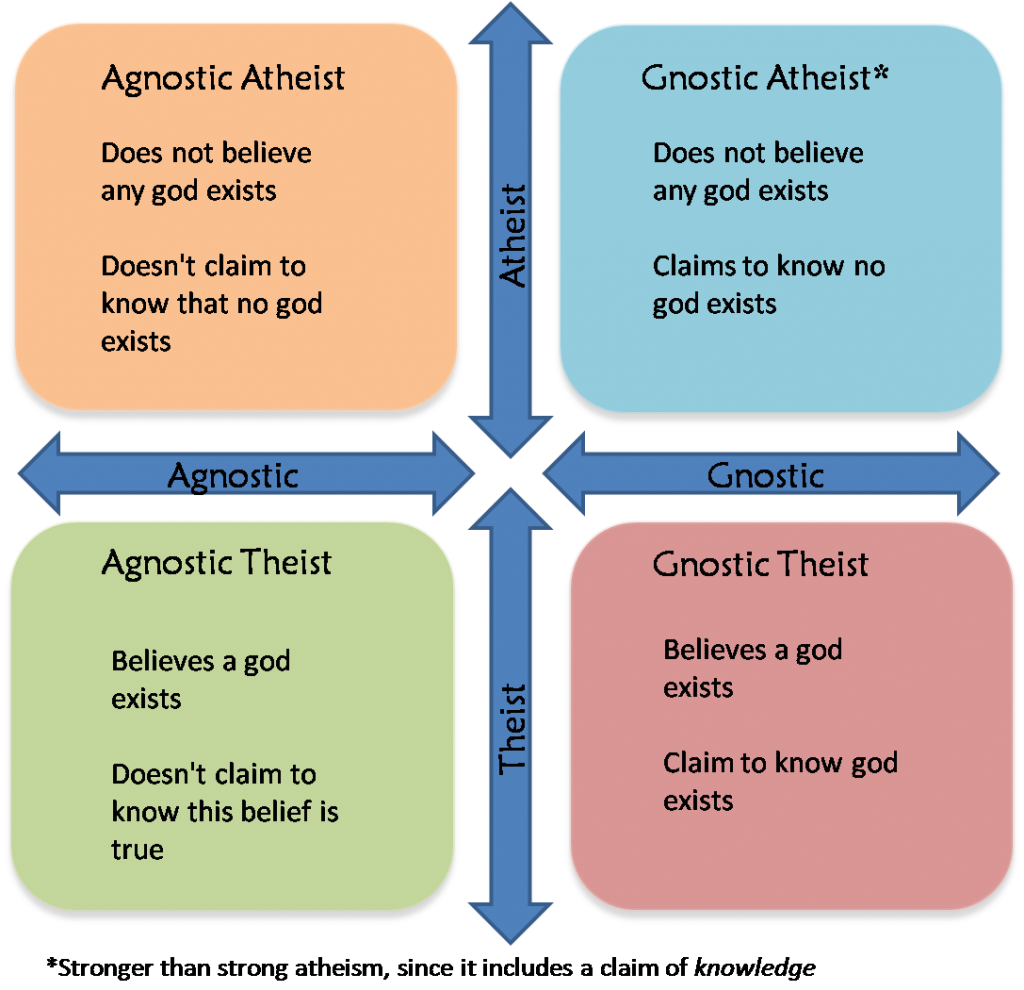Soldato
- Joined
- 8 Mar 2007
- Posts
- 10,938
OK, I think I can finally win the semantics battle. Firstly let me state my position....
"I believe an atheist is anyone that doesn't actively believe in a God. In short, anyone that answers anything but 'yes' to the question 'Do you believe in a god or gods?'.
That includes anyone that has no knowledge or concept of a god like babies, animals ect"
Here is my argument (as a linguist Castiel should like it)......
The prefix "a" or "an" on a word means....
Source: http://wordinfo.info/units/view/2838/page:1/ip:1
When you look at another other words with the prefix of 'a' it means 'without' or 'lack of' and NOT 'a rejection of'.
For example.....
The rejection of bacteria is called 'antibacterial'.
Being asexual doesn't mean you actively object to sexuality.
Not usual. Not a rejection of normality.
Suitably, I can even use the word 'agnostic' which literally means 'without knowledge'. Thus I would argue the word 'atheist' literally means 'not a theist' or 'without theism'.
Hence it is binary. Anyone that is without God, either through rejection or ignorance is atheist.
As elmarko has said many times, theism and atheism concern belief, agnosticism concerns knowledge. Not knowing if a god exists or having no knowledge of a god in the first place is different to considering the possibility/probability of a god existing. To quote Penn Jillette, "They are simply two different issues."
Being atheist (without an positive belief in god) and being agnostic (not having knowledge on whether a god or gods is possible) are not mutually exclusive.
"I believe an atheist is anyone that doesn't actively believe in a God. In short, anyone that answers anything but 'yes' to the question 'Do you believe in a god or gods?'.
That includes anyone that has no knowledge or concept of a god like babies, animals ect"
Here is my argument (as a linguist Castiel should like it)......
The prefix "a" or "an" on a word means....
Greek: prefix; no, absence of, without, lack of; not
Source: http://wordinfo.info/units/view/2838/page:1/ip:1
When you look at another other words with the prefix of 'a' it means 'without' or 'lack of' and NOT 'a rejection of'.
For example.....
abacterial (adjective)
Free of bacteria; without bacteria: "The wound had been cleaned and was now considered an abacterial injury."
The rejection of bacteria is called 'antibacterial'.
asexual (adjective)
1. Without any sexual gestures, feelings, or associations: "His friend placed her hand on his shoulder in a friendly, asexual manner."
Being asexual doesn't mean you actively object to sexuality.
atypical
A descriptive term for that which is not usual or normal: "They had an atypically leisurely work day just before the holidays."
Not usual. Not a rejection of normality.
Suitably, I can even use the word 'agnostic' which literally means 'without knowledge'. Thus I would argue the word 'atheist' literally means 'not a theist' or 'without theism'.
Hence it is binary. Anyone that is without God, either through rejection or ignorance is atheist.
As elmarko has said many times, theism and atheism concern belief, agnosticism concerns knowledge. Not knowing if a god exists or having no knowledge of a god in the first place is different to considering the possibility/probability of a god existing. To quote Penn Jillette, "They are simply two different issues."
Being atheist (without an positive belief in god) and being agnostic (not having knowledge on whether a god or gods is possible) are not mutually exclusive.
Last edited:





